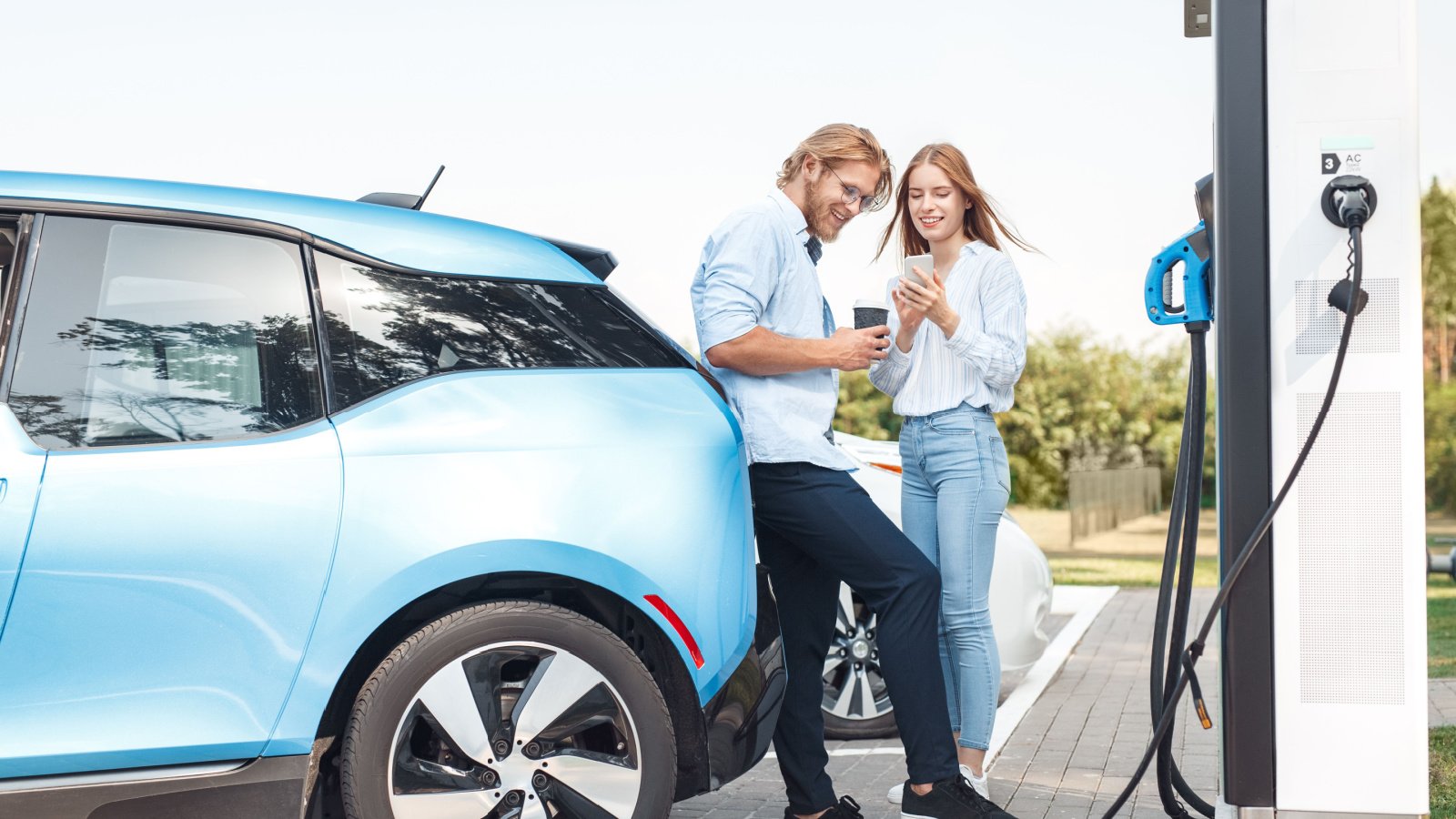As society rapidly evolves, certain items and practices become relics of the past, giving way to more efficient, innovative technologies and behaviors. From physical media like DVDs to outdated business tools such as fax machines, the landscape of our daily lives is shifting dramatically.
Here, we explore the most common items that are poised to disappear from our society in the next decade, illustrating the impact of technological advancements and changing consumer preferences. Understanding these shifts can help us anticipate and adapt to the future, ensuring we’re not left clinging to the vestiges of a bygone era.
Physical Credit Cards

As digital payments become more ubiquitous, physical credit cards are on their way out. Smartphone payment systems and virtual wallets are already replacing the need to carry a physical card. By the end of the decade, most transactions will likely be conducted via mobile devices, making plastic cards redundant.
Cash Transactions

The trend towards a cashless society has been accelerated by the convenience of digital transactions and heightened by hygiene concerns during the COVID-19 pandemic. More businesses are moving towards electronic payment methods exclusively. In the next ten years, cash might become a rare sight in daily commerce.
Traditional Cable TV

Streaming services are rapidly displacing traditional cable television, with consumers preferring to choose what to watch and when; without the constraints of a broadcast schedule, cable companies are losing subscribers quickly. It’s expected that the next decade will see the end of traditional cable TV as a standard household service.
Physical Newspapers

The decline of print media has been notable as more readers turn to digital platforms for their news. Physical newspapers are struggling to compete with the instant access and lower cost of online publications. Within ten years, the daily print newspaper might be a collector’s item rather than a morning routine.
Internal Combustion Engines

With global shifts toward sustainability and green energy, the internal combustion engine is expected to become obsolete. Electric vehicles are becoming more affordable and efficient, and many countries are planning to ban the sale of new petrol and diesel cars. The next decade could see the end of traditional gas-powered vehicles on a mass scale.
Public Payphones

Once a staple in every city, public payphones are rapidly disappearing. The ubiquity of mobile phones has rendered these once-crucial communication points nearly useless. It’s likely they will be completely phased out within the next decade, existing only in museums.
Plastic Shopping Bags

Due to increasing environmental awareness and legislation aimed at reducing plastic waste, plastic shopping bags are becoming obsolete. Many regions have already implemented bans or taxes on plastic bags to encourage more sustainable alternatives. This trend is expected to continue globally, leading to their disappearance.
Incandescent Light Bulbs

Incandescent light bulbs are inefficient compared to LED and fluorescent bulbs, which use less energy and last longer. With energy conservation efforts and environmental regulations tightening, the production and sale of incandescent bulbs are decreasing. They are likely to vanish from the market entirely in the next decade.
Wired Phone Chargers

The future is wireless, and phone charging is no exception. Wireless charging technology is improving, and its adoption is growing. In ten years, wired phone chargers may become obsolete as more devices adopt wireless charging standards.
Passwords

The frustration with remembering an array of passwords is driving the development of more secure and convenient forms of authentication. Technologies like biometrics, facial recognition, and voice identification are becoming more prevalent. Passwords could be replaced completely within the next decade by these more secure alternatives.
Manual Driving

Autonomous vehicles are advancing rapidly, suggesting that the days of manual driving are numbered. Safety improvements and efficiencies in traffic management are likely to push society towards fully autonomous transportation. By 2030, manual driving could be more of a hobby than a necessity.
Keys

Physical keys are becoming obsolete as digital locks and smart-home technology become more prevalent. From cars to homes, access is increasingly governed by digital means, whether through apps or voice commands. Physical keys might soon be replaced entirely by digital solutions.
Standalone GPS Devices

The integration of advanced GPS functionality into smartphones and cars has led to a decline in the use of standalone GPS devices. As mobile technology continues to improve, these devices are becoming unnecessary. They’re likely to disappear from consumer use in the next decade.
DVD and Blu-ray Players

As streaming services and digital downloads become the norm for watching movies and TV shows, physical media players are becoming less relevant. The convenience and selection available online are factors that contribute to the decline of DVD and Blu-ray players, which are likely to vanish from most households soon.
Landline Telephones

With the increasing reliance on mobile phones for communication, the traditional landline telephone is becoming obsolete. Many homes no longer install them, and businesses are switching to VoIP systems. The landline telephone is expected to disappear entirely within the next decade.
Fax Machines

Once essential for business communications, fax machines have become outdated. Email and other digital communication methods are faster, more efficient, and more secure. In the next ten years, fax machines will likely disappear completely from the office.
Library Checkout Cards

Digital cataloging and automated checkouts are replacing the old system of library cards and manual checkouts. Libraries are adopting technology that speeds up the borrowing process and provides more information about borrowing habits. Traditional checkout cards will likely be phased out completely.
Compact Discs

The rise of streaming music services has drastically reduced the demand for physical CDs. Digital formats offer convenience and a smaller environmental footprint. Within a decade, CDs could become a niche market for collectors rather than a mainstream medium.
3D Glasses in Cinemas

The novelty of 3D movies has worn off for many consumers, and the demand for 3D screenings is declining. Movie studios and theaters are increasingly abandoning this format due to the extra cost and the lukewarm reception from audiences. 3D glasses are expected to disappear from most cinemas.
Analog Watches

As smartwatches continue to gain in functionality and popularity, traditional analog watches are becoming less common. While some may retain them as fashion statements or luxury items, everyday use is shifting towards smart devices that offer more than just timekeeping. The practical necessity of analog watches is diminishing.
Checkbooks

Digital banking and online payments are replacing the need for writing checks. Fewer stores accept checks, and electronic transactions are often safer and quicker. The use of checkbooks is declining rapidly and might disappear entirely as financial transactions become fully digital.









Zwar werden nicht viele Boni angeboten, aber dafür bietet das Casino jedem Spieler eine erstklassige Casino-Umgebung.
Nein, Simsinos bietet derzeit keine dedizierte App zum Herunterladen an. Die mobile
Webseite von Simsinos bietet eine vollständige
Casino-Erfahrung ohne die Notwendigkeit eines App-Downloads.
Spieler können einfach über ihren mobilen Browser auf das Casino zugreifen und finden eine optimierte Seite vor, die alle Desktop-Funktionen enthält.
Die Anmeldung bei Simsino ist schnell und einfach – klicken Sie
einfach auf die Schaltfläche “Registrieren” und Sie werden durch einen einfachen Prozess geleitet,
der nur wenige Minuten in Anspruch nimmt. Außerdem
macht unsere niedrige Mindesteinzahlung von nur £10 den Einstieg ins Spiel einfach, ohne dein Budget zu sprengen. Bereite dich darauf vor, mit dem unschlagbaren Willkommensbonus von Simsino groß abzuräumen! Von klassischen Favoriten wie Starburst und Book of
Dead bis hin zu innovativen Veröffentlichungen von Top-Entwicklern wie
NetEnt und Microgaming liegt die Wahl bei Ihnen. Simsino bietet eine riesige Spielauswahl,
die garantiert die Wünsche jedes Spielers erfüllt.
Simsino ist ein schnell wachsendes Online-Casino, das schnell zu einem Favoriten unter Spielern weltweit geworden ist.
Die Simsino Casino Registrierung ist einfach und ermöglicht es neuen Spielern, ihren Willkommensbonus schnell
in Anspruch zu nehmen. Jede der 25 Treuestufen bietet Auszahlungsvorteile von bis
zu 25%, Freispiele und andere exklusive Preise wie echtes
Bargeld. Außerdem vergibt das Casino 140 Freispiele, die Sie sieben Tage lang nach Ihrer Einzahlung in 20er-Paketen erhalten. Zusätzlich erhalten Sie 110 Freispiele für das Spielen von Rich Wilde und The Tome
of Madness von Play’n GO oder Book of Shadows von Nolimit City, je nach Region.
References:
https://online-spielhallen.de/admiral-casino-auszahlung-ihr-weg-zum-gewinn/